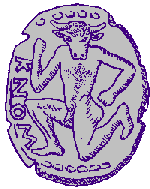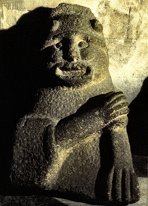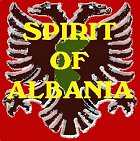
Filmi
kanadezo-shqiptar, Gruaja pa krahë'
sapo ka
fituar çmimin e argjendtë ‘Remi Award',
si pjesëmarrës në ‘Houston Worldfest 2003'
në Teksas.
a
canadian-albanian film
about the "sworn
virgins"
of northern albania
ALBANIAN POEMS OF DISSIDENCE
by Mirash Ivanaj, Dalan Luzaj,
Trifon Xhagjika, Namik Mane, Gazmend Elezi
Bilal Xhaferri and Luljeta Lleshanaku
To
read this page properly, please ensure that the character encoding
of your browser is not set to the default 'Unicode'.
1.
|
MIRASH
IVANAJ
translated
by Zana Banci and Anthony Weir
THE POET'S CRY FROM THE PRISON HE DIED IN Farewell O life, farewell
O world! (1953)
Mirash Ivanaj (born in
1891) was one of two highly-talented brothers who both were
members of King Zog's pre-war government. Mirash was for two
years the Albanian Minister of Education before being exiled
with Zog when Italy annexed Albania in 1938. He was responsible
for terminating future dictator Enver Hoxha's scholarship in
France - a common enough action in the days when Zog locked
up, exiled or assassinated his opponents. At
the early age of seventeen he was writing almost as bitterly.
SONG FOR FINALITY Poison
ivy marches from my grave Withered
grass the colour of death (1908)
Dikur
do kalbet drur'i kryqit tim __________________
This memorial
I write with shaking hand, And when the afflictions
of the future And will your
lips begin to quiver |
2.
|
DALAN
LUZAJ
1944 - from
the collections LIFE FOUND ME QUITE ALONE, translated by Zana Banci and Anthony Weir
SHOP-WINDOW Cold pockets The bed
APPROACHING THE FLOWER I approach the
flower. I can give it shade
where it is too bright. like a child stammering.
EMIGRANT Entering the sphere
of enterprise and hope
ONE SUNNY DAY This is for you
who was always far away... My memories of
the past:
WOUNDS Life came and found
me quite alone. Life came and found
me quite alone. Nowhere on this
whole continent
EYES Everything ages
- Look at me one
more time
THE TROUSERS OF INTERNMENT My pants Like faded days And the wind brought
me from far-off the memory
WHERE CAN I PUT THE SYMBOLS ? Where can I put
the symbol of Honour and In our time pedestals
HOT KISS Kiss gently States swell up
I WILL COME KNOCKING As an evening What colour it
will be Everywhere you
find yourself With sorrow I came.
I could not talk with you.
FORGIVE ME, POETRY I set out for you
early on:
As a child with
shining eyes
! ! ! We survived
LEAVE IT TO
THE EARTH
ROUTELESS Between the roads
Dalan
Luzaj was born
in the Southern city of Vlora. His father Isuf was one of the
leaders of the Balli Kombetar Shqipetar organisation which
was in opposition to the Stalinist Enver Hoxha who desolated Albania
like a hurricane. After Hoxha came to power Isuf Luzaj fled the
country, and in his stead his family was hounded and persecuted.
Jeta me gjeti vetëm (Life found me quite Alone) was published in 1995; Diejt të largët (Distant Suns), in 1996; and Pa Rrugë (Routeless) in 2002. Other volumes have since appeared.
VITRINË Xhepa
të ftohtë, Digjet
shtrati nga avujt e nxehte,
I QASEM LULES I qasem lules. Kur
e mbaj në duar E
mund t'i jap hije atje ku ka dritë, Duke bëlbëzuar fjalë prej fëmije
EMIGRANTI Kur
hyn në orbitën e vrullit dhe shpreses
NJË DITË ME DIELL Kjo është për ty që mbete larg; ne
mund ta sjellësh pak ndër mend Më
vjen e shkuara ndër kujtime,
PLAGË Erdhi
jeta e me gjeti vetëm, Erdhi
jeta e më gjeti vetëm,
SYTË Gjithçka
vjetërohet, Shikome
dhe nje here
PANTALLONAT E INTERNIMIT Pantallonat
e mia Pantallonat
e mia si dite te shngjyrosura, Era
së largu m'i përkund ne kujtesë
KU
T'I VENDOS SIMBOLET Ku
ta vendos simbolin e Nderit dhe të Piedestalet
në kohët moderne Po
i vendos
PUTHJE E NXEHTË Puthuni
lehtë Bymehen
shtetet
DO VIJ TË TROKAS Si
flutur Ç'ngjyrë
do të ketë, Kudo
që të jeni Me
brengën që erdha, ika
MË FAL, POEZI U
nisa drejt teje në agimin e jetës,
KU PRESIM Me
sytë e ndritshëm, Lojra
fëmije,
! ! ! Në
kufijtë e pamundësisë
LËRJA BALTËS Toka
eshtrën e ha ngadalë,
PA RRUGË Mes
rrugësh
Filmi
kanadezo-shqiptar, Gruaja pa krahë' |
A water-colour of Gjirokastër by an early English traveller
in Albania
- Edward Lear.
|
FROM
TWO VAGABONDS IN ALBANIA
« Even its warmest admirers would not claim that the Government of Albania is as yet an admirable model. Here is at once a republic and an autocracy: in a condition similar to the smaller South American republics of romantic memory. The condition is not, in truth, blamable to Government alone. Albania is now some five or six years old. Before the inception of this self-governing republic the peasants lived almost untaxed and almost free from military service. Set a chilf of six years old to be its own parents, guardians, and schoolmaster and you would hardly expect success. The foundation of proper government is money, or work in lieu of money. But the peasants and merchants have the strongest objections to paying adequate taxes, and are quite ready to revolt in order to find a Government that will run the country without taxes. Government officials, from highest to lowest, aware of the risky tenure of their posts, are tempted to make their places a means of immediate profit, garnering against the future disaster when they will have to flee the country. It is difficult, morevover, to blame much to a country that has not learned the word Nationality from its cradle, and which has no notion of what 'Public Service' can imply. It is difficult to blame it for its first tottering attempts in the art of self-government. The people are also divided into four religions, all of whom despise each other - Orthodox Mohammedans, Bek-ta-shees, Greek Church, and Catholics. « The present dictator, Ahmed Zogu [who made himself King Zog] chief of the Mati tribe, is admitted by most to be a patriotic, hard-working and sincere man, but his hands are tied, and he is controlled by the members of his suite, his ministers, and deputies. Whatever reforms he may believe to be possible, he has no instrument with which to carry them out. The Christians, who are his most eager enemies, and who are most clamorous for the development of the country, have made that development impossibler, since a general political peace is the only condition under which the dictator could substitute for the many venial amongs his supporters more honest though less powerful partisans. How is it possible to build up an efficient public service when not one believes in the permanency of the State ? « In this welter of bribery, office-seeking and corruption a little group of English ex-army officers has been engaged as advisers to the police. They have no real power whatever, but popularly in Albania they are thought to be almost all-powerful. They are naturally hated by a large group of ministers and deputies, who see in them an obstacle to their own political and selfish projects and who will do anything to prevent, for their own ends, the propagation of any reforms for which these Englishmen are struggling and which the President himself may really desire. »
|





